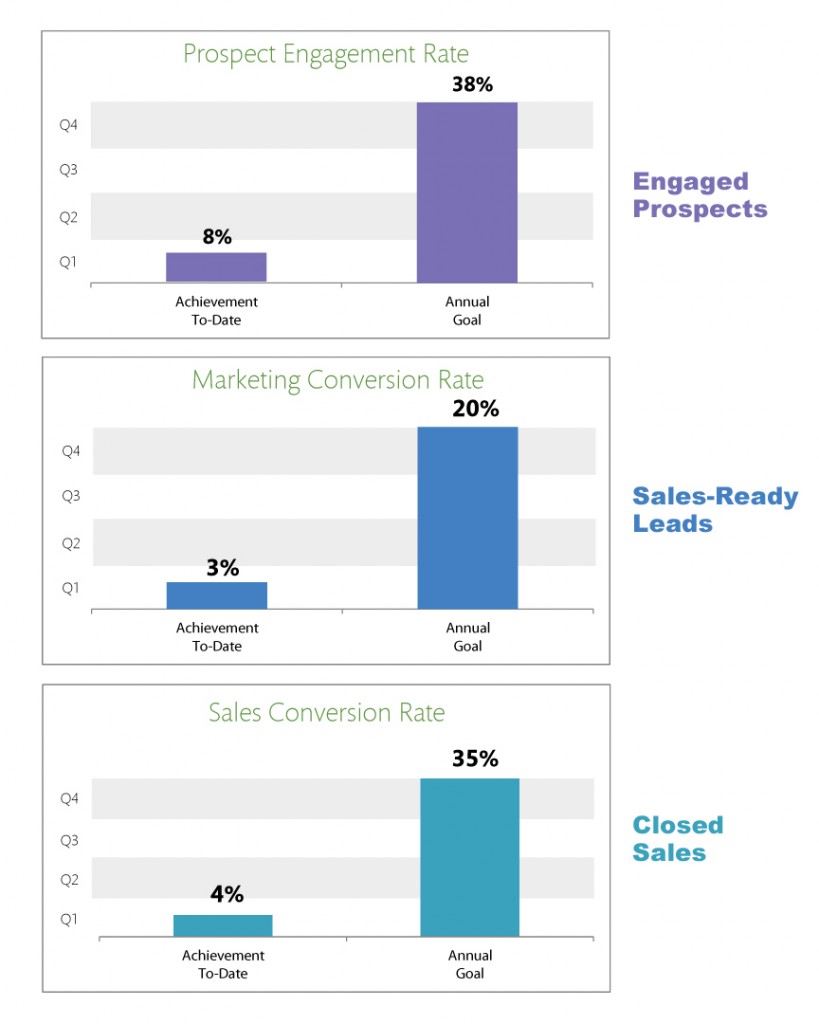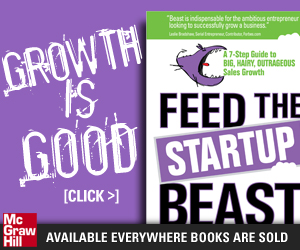Why we love marketing dashboards
We love dashboards. We love being surrounded by stuff that makes us feel in control. It seems you can’t swing an iPad these days without hitting a marketing dashboard that promises to make your CEO respect you.
Recently, I was watching a webinar from the AMA and Domo – one of the new breed of data aggregators and dashboard propagators who has raised over $120 million in funding, involving such luminaries as Jeff Bezos and Marc Benioff… so you know they must be on to something.
50 KPIs
The webinar informed me that there are 50 KPIs that any self-respecting marketer should be tracking in order to achieve the aforementioned respect. (“Surprise! There’s actually 72 KPIs,” said the moderator giddily.) Anything less makes you a Dashboard Underachiever. Not wanting to be any kind of underachiever, I dove into their dashboard, imagining it in front of me as I used the intelligence emanating from the colorful charts to deftly tweak and modify my marketing programs in mid-course, sure-handedly coaxing my results towards the holy grail of marketing: actually hitting my quarterly numbers.
The thing that was missing for me, no matter where I looked, was any explanation of how these metrics could be woven together to tell me a story that I could use to actually manage my business. The dashboard looked closer to a bucket of nails than a blueprint for a house: useful, but where do I go from here?
Is more better?
I do believe in metrics. I really do. But I think we may be getting carried away with the idea that more equals better. Fifty metrics are too many to make sense of on an ongoing basis. There’s a reason there are only 3-4 gauges on your car’s dashboard. If your goal is to get from point A to point B efficiently and effectively, you need to identify the information you can assimilate and use, and then manage to those measures. Do I have enough gas? Check. Is my engine overheating? Nope. Let’s go.
The same is true back in marketing-land. Even if you have a team of analysts at your disposal, you still need a handful of meta-metrics that you (and your CEO) can glance at to know whether you’re on track or not. In a recent gig as acting-VP marketing for a data mining company (yes, I’m aware of the irony), we worked for months to finally deliver a dashboard that didn’t provoke vacant stares from the management team.
Our historic sales were distributed evenly throughout the year, and we knew that to hit our annual goals we needed to hit the conversion rates on the right of the graphs above. If we were half-way through Q1, the charts above told us we were on track, delivering enough at the top of the funnel to support our annual goal. If, on the other hand, we were at the end of Q1 and staring at the above charts, then we knew there was slippage somewhere in our marketing system.
Keying-in on what really matters
And while we would then get into the minutia of metrics like “percent of pages indexed”, it’s important to mention that outbound marketing produced far more immediate results for us than inbound marketing. Accordingly, the fine-tuning required to improve our Prospect Engagement Rate had much more to do with the big issues like improved targeting, more compelling offers (content), and better communication of those offers, than it did with the endless tweaking of social media tactics and even SEO (see this blog post on doing the big things right).
The single-minded dashboard
We love dashboards because the idea of control creates calm in our otherwise hectic lives. But the latest round of “business intelligence” dashboards threatens to create yet one more “gotta have” technology that promotes the idea that more is better when really, more is not better. What is better is a deeper understanding of our customers and our businesses and, from that, making sure the big things that move over 80 percent of our sales are done well. If you measure that, you may just see an appreciative glint in your CEO’s eye.
About Drew Williams
My name is Drew Williams. I’m an author and marketing entrepreneur. “A what?”, you say. I call someone who’s passionate about building businesses a marketing entrepreneur. So that’s me. Full Profile | Google+








Recent Comments